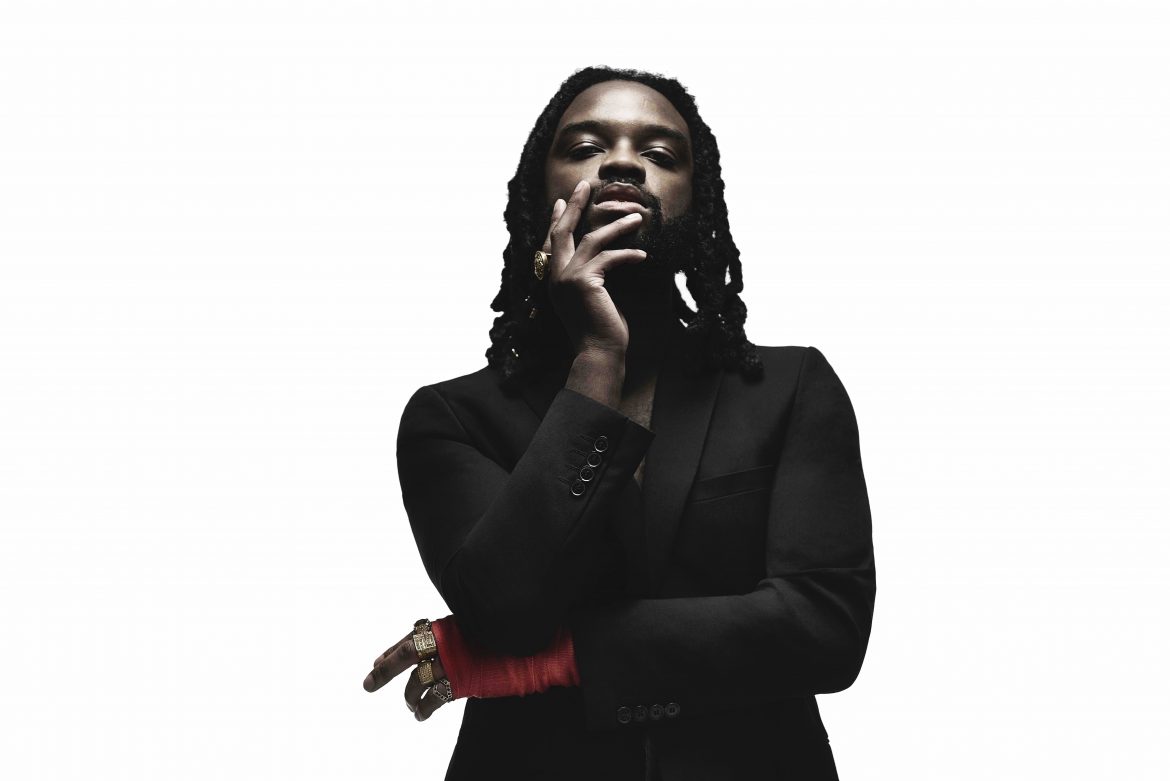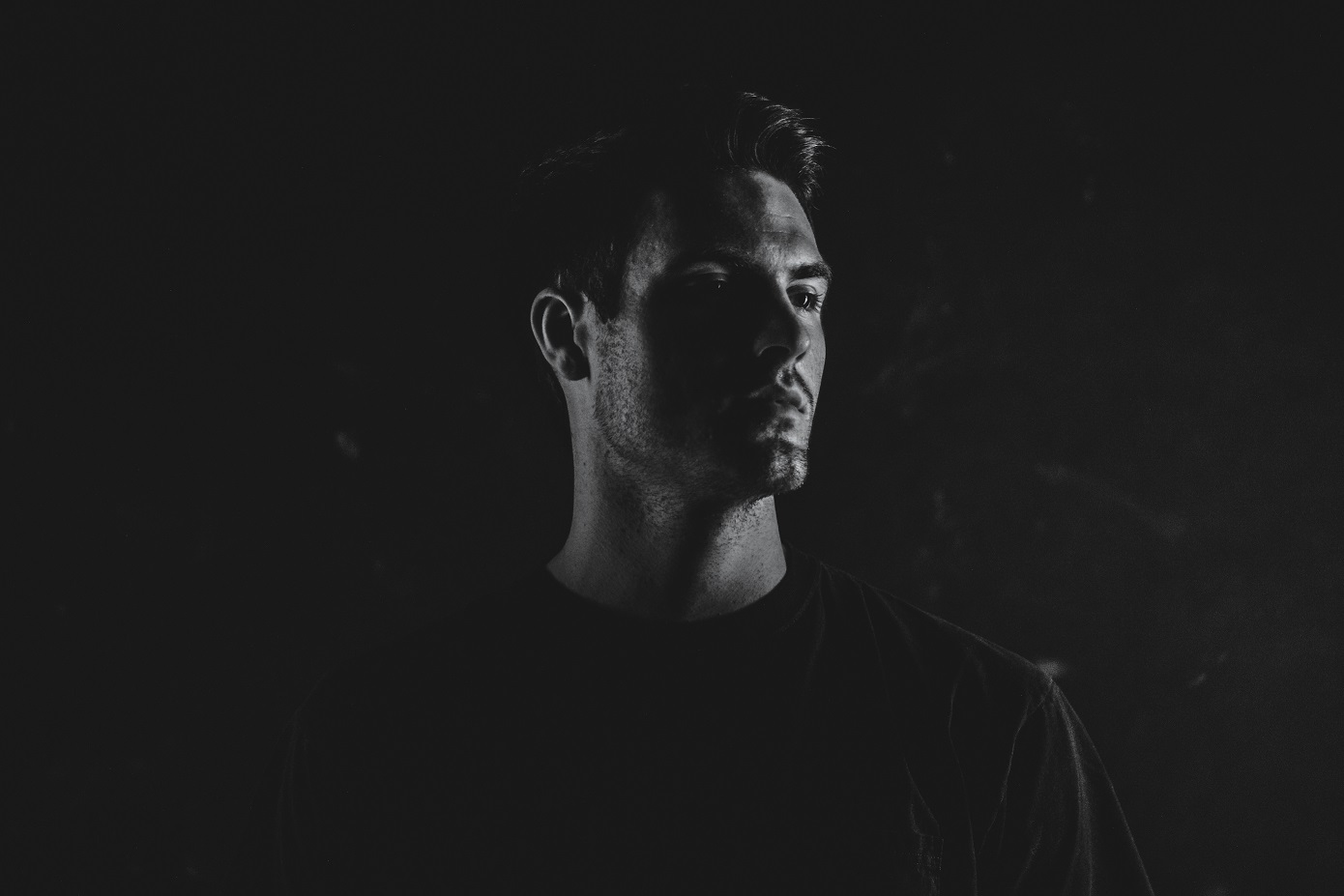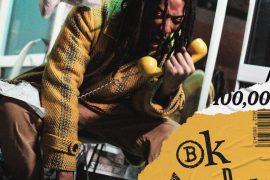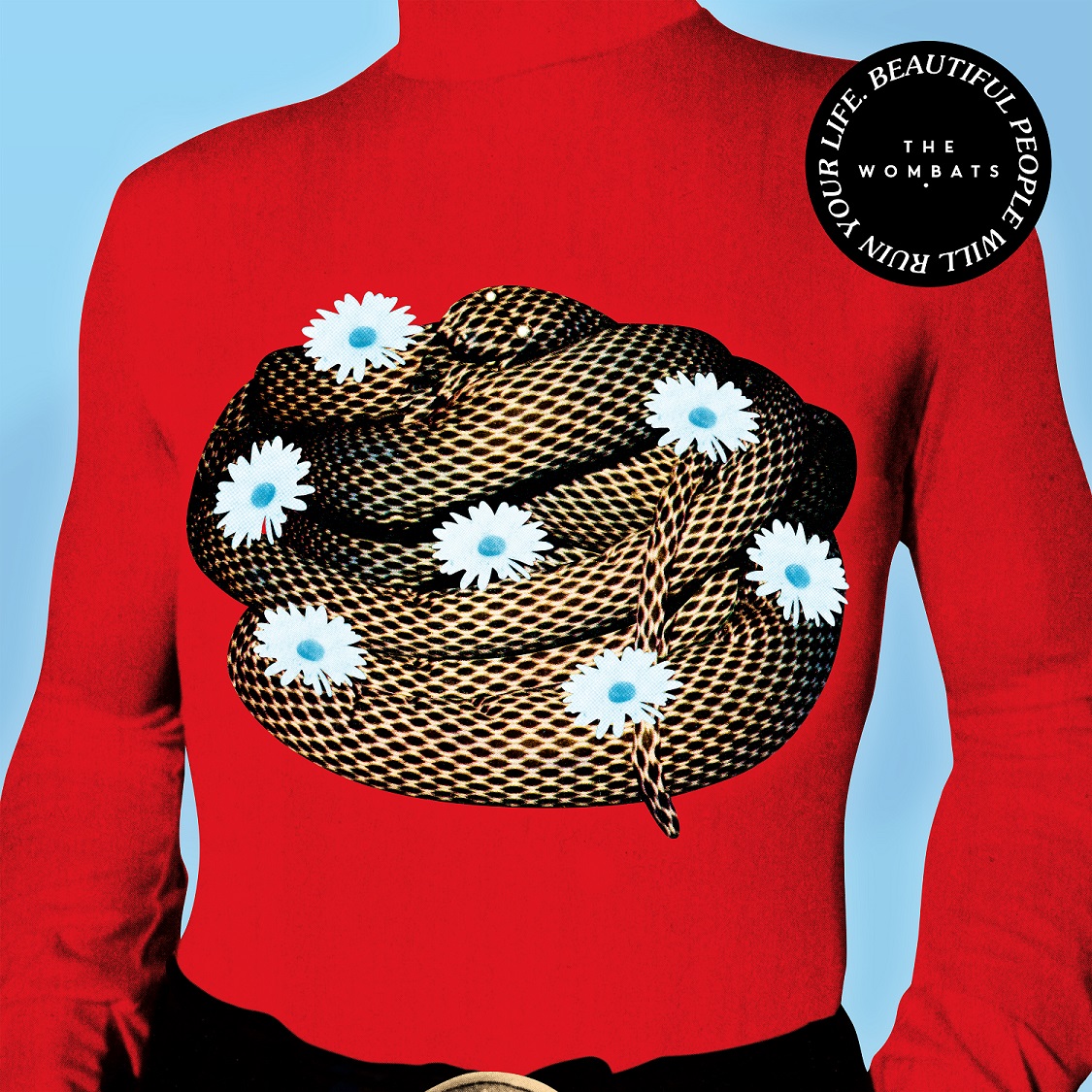‘Smiling with No Teeth’ sees Canberra’s Genesis Owusu take his idols’ influences and blend them into something completely new.
Stream: ‘Smiling with No Teeth’ – Genesis Owusu
Kofi Owusu-Ansah is surrounded by his heroes. Sat in his Canberra bedroom a week before the release of his scintillating debut album Smiling with No Teeth, he knows his musical lineage. “I’ve got a bunch of my favourite records in my room, here right now, and My Beautiful Dark Twisted Fantasy is in the centre, next to To Pimp a Butterfly and Kind Of Blue by Miles Davis and Axis: Bold as Love by Jimi Hendrix and MF Doom and stuff like that.”
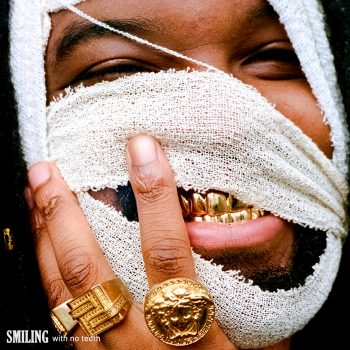
Owusu-Ansah – who performs under the name Genesis Owusu—fits right in among them. An eclectic wander through the history of music, Smiling with No Teeth’s energy is undeniable, while its powerful message is vital. “The album is called Smiling With no Teeth, which essentially is pretending things are ok when they’re not. It tackles these topics of depression, racism, where in my life talking about it, it often had to be watered down or sugarcoated just to get people to listen to what I’m saying about it,” says Owusu-Ansah.
“So I wanted to tie that concept into the album by making it sound sexy and upbeat and fun and dancey and then when you actually delve into, it’s a facade, a fake smile and you get into the core of what I’m actually talking about.”
It’s like an album of “Hey Ya”s, a picking up of where the likes of Outkast, Kanye West, Kendrick Lamar, and Miles Davis have left off – but with a swerve into uncharted originality so reviving, none of Owusu-Ansah’s heroes would have seen it coming. Not since Lizzo’s Cuz I Love You has a record felt so completely, ground-shatteringly new—but the music that made Owusu-Ansah want to make his own music has left fingerprints worth exploring.
Yes, while there’s so many influences pulsing through Smiling with No Teeth, those five bedroom heroes capture it’s essence perfectly. By analyzing them, the story of the record – and of Owusu-Ansah—is told.
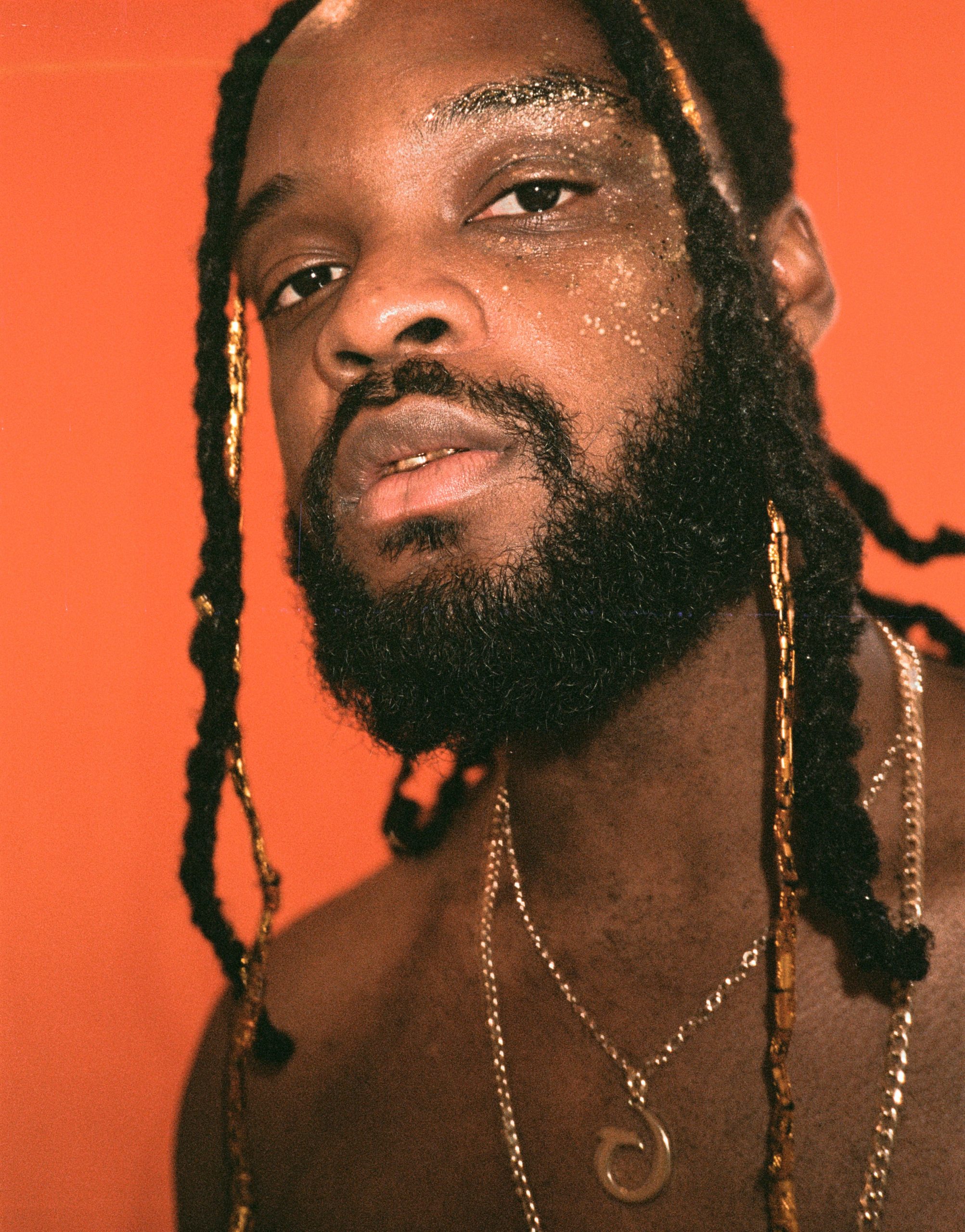
The album’s fifteen songs sit in no musical pocket for long.“I have my comfort zone when I can produce good things, but I hate staying in that comfort zone. I hate doing the same thing twice. I really thrive in spaces of chaos and uncertainty—I feel that’s where the most exciting stuff comes out for me.” Owusu-Ansah takes his life, both musically and personal, and pours it into every aspect of the record. It’s all uniquely him. Although he recorded his album last year, the story actually starts much earlier, when he heard Kanye West for the first time
West offered an escape: “Growing up, it was still a 50 Cent era, it was a very gangster era, and living in Canberra where there’s like no other black people—or there wasn’t at the time—everyone expected me to be like 50 Cent,” says Owusu-Ansah. “We had 50 Cent and we had Eddie Murphy, those were the two black people people knew. So I could either be a funny comedian or some hard gangster.”
“That changed when I found Pharrell and Kanye. They were like the first two that like shimmering outside of those boxes. Pharrell was like some baby-faced, smooth, dude singing in falsetto and skateboarding. He was into rock music and anime and stuff,” says Owusu-Ansah. “Kanye was just a weirdo as well, making all kinds of crazy music. Those were two figures that I first got to grasp, that really showed me the importance of the black weirdo.”
This is why, when Owusu answers a phone call with Atwood Magazine all these years later, My Beautiful Dark Twisted Fantasy is “front and centre.”
Seeing West not just create masterpieces but be weird changed everything. Erykah Badu and André 3000 soon followed as case studies in being your true self for Owusu. Naturally, he burst out of his box.
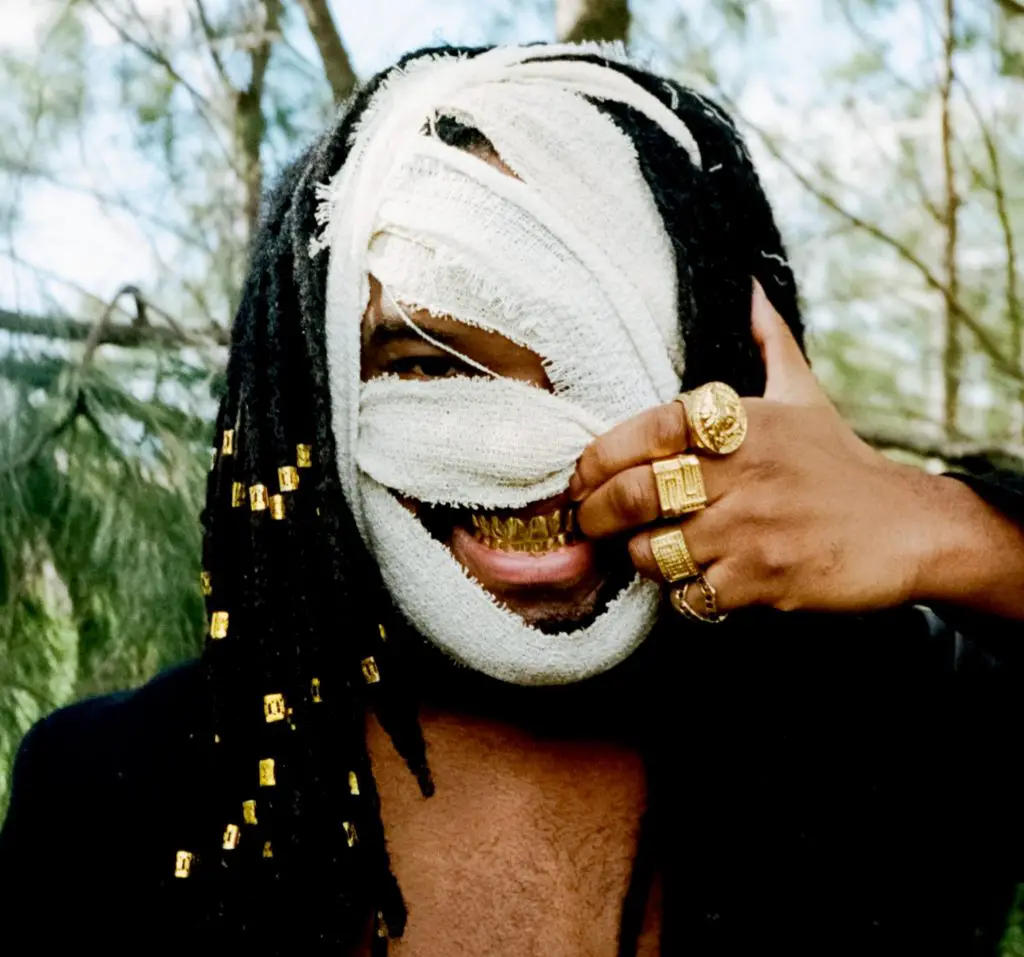
While overcome with this newfound freedom, the seed of Smiling With No Teeth was planted from a deep love of Kendrick Lamar’s landmark LP To Pimp a Butterfly. One of the greatest concept records of all time, Owusu-Ansah uses it as his guiding light. “When I think of concept albums I immediately think of To Pimp a Butterfly, where the concept is just so tight and you get it from the jump and I think that’s where my aspirations are.
Smiling With No Teeth centres around two characters, whose stories are at once relatable, heartbreaking and rage-inducing.
“I was writing these songs about depression, and the black dog is a commonly used euphemism for depression, but then I realized I’ve been called a black dog, in a racial context, as a racial slur. So I thought this term was really interesting to encompass both of the issues I was talking about,” Owusu-Ansah said. “So I thought it would be kind of a fresh approach to personify them and create them into characters. These two black dogs are characters with their own personalities and motives and mannerisms and stuff like that.”
This concept sees the album split into two halves. The split is striking, with “I Don’t See Colour” a sonic departure that hits hard. The album’s first half is intentionally upbeat, the “essentially pretending things are ok when they’re not” that Owusu-Ansah references above: “The first half deals with the internal black dog, which is depression. These are the songs where specifically, sonically it’s a bit more ambitious, the sonics are more upbeat and at points sensual to complement his personality of wanting to lure you in and be your only one.”
On side two, the mask is off: “And the second black dog, which takes the second half of the album is kind of more direct. It deals with the brunt of racism and oppression and it’s angry, it’s more in your face than the more lurking personality of the internal black dog.”
Taken together, this album is a trip through the mind and life of a Black outsider, an artist who has spent their life managing these two dogs. It’s also incredibly relatable for most listeners: “Everyone is smiling with no teeth. Like if someone asks you if you’re ok, for the most part you’re not going to start delving into all your personal problems in life, you’re just going to be like ‘yeah, I’m alright.’”
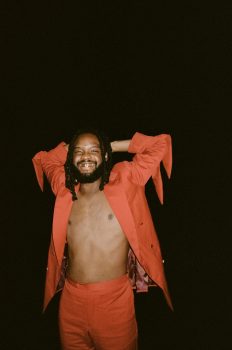
Sonically, Owusu calls to mind Mile Davis’ Kind of Blue. Both Davis and Owusu-Ansah got musicians in a room—musicians that Owusu-Ansah hadn’t met before—hit record and worked with what came out. “We got together in this bedroom-sized studio in sweltering heat. We were crammed in this hot, very uncomfortable, disarming situation. It was like, so uncomfortable that all you could do was make music,” says Owusu-Ansah. Every musician came from a different musical background, meaning whoever took the lead controlled the genre. Only during the listen back—and yes, Owusu-Ansah listened to all sixty hours recorded—did the sound become apparent.
“A lot of the songs are straight excerpts from the jam sessions, with just production flourishes here and there. So if the song goes for like three minutes and 16 seconds, then it’s likely that’s how long we were jamming on it for.”
These “flourishes” come thanks to Owusu’s love of Hendrix’s Axis: Bold as Love. Smiling With No Teeth’s flamboyance, the large personality and the technical virtuosity are straight out of the Hendrix handbook (before stopping along the way at the sonic watering holes of Prince and Solange). You can especially hear it in the album’s quieter moments: For all the playing with his teeth and setting guitars on fire, Hendrix was an emotive bluesman. Owusu-Ansah merges these two personalities – the showman and the sadman – seamlessly.
And finally, it’s easy to trace the shadows of MF Doom cast over Owusu’s shining debut. The master of wordplay. The rapper with the dictionary. This album lands like it does because of the influence of the masked wordsmith. The wordsmithing, raw power and underlying themes are as evident on Smiling With No Teeth as they are on Mm..Food.
Look no further than Owusu’s “I Don’t See Colour,” the powerful opener of the album’s second half. It’s sonically brooding, setting a heavy mood that only grows with each passing beat.
When you see the Arab man, it’s all bombs and flares
When you see the Asian man, its the yellow scare,
When you see the Black man, its riots and terror,
But when I talk about slavery, you weren’t there, how convenient,
Quick to point the judges pole, but now you lenient,
Your image wasn’t up for grabs in this agreeingment,
But somehow your actions represent a whole race,
Its hard to move different when your face is their face
No matter the genre, Owusu-Ansah shines.
He’s the star conductor, the blender all these classic albums are swirled up in – taking the musical ingredients of the past and making a modern, previously untasted meal. He’s the one pouring out his heart and soul, the one unleashing his two black dogs in an attempt to help you tame yours. “What I hope to accomplish with this album is to be a figure for young black kids who are going through the same thing I went through growing up. To say ‘you don’t have to go down this route, you can do whatever you want, and I will show you that you can sound however you want, you can look however you want, you can do whatever you want.’
— —
:: stream/purchase Smiling With No Teeth here ::
— — — —
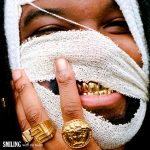
Connect to Genesis Owusu on
Facebook, Twitter, Instagram
Discover new music on Atwood Magazine
? © Daniela Federici
:: Stream Genesis Owusu::

